

Now that Step 1 is pass-fail, you may wonder how long it might take you to get to a passing score. It’d be easy, in fact, if you knew exactly what people’s scores were when they started, how they studied, and when their scores improved by the 20-60 points necessary.
The problem? Being a medical student is like living on social media. Everyone tries so hard to promote perfect images of themselves.
Tell me if these sound familiar:
- “I only used First Aid and UWorld and scored 272. If I can do it, you can do it.” (The implication is that they’re a genius because, in truth, no one “only” uses UWorld and First Aid).
- “Everyone knows you only need 4 weeks to study. Just take your test already!” (Translation: you’re an idiot if you need more time).
- “My first score was 130. I scored 250 in 5 weeks.” (Look at me, I’m so smart!).
Everywhere we look, med students seemingly breeze through everything. When I was at Stanford, one student would finish every exam an hour earlier than everyone else. In case we didn’t notice him, he loudly picked up his bag and let the door slam shut. Every. Single. Time.
Culture of Invincibility Makes Step 1 Planning Difficult
However, this culture of invincibility in medicine makes Step 1 studying particularly treacherous. Everyone gives you advice, but no one shares their actual scores. And if they do, rarely do you get to see:
- Their practice test scores, or
- How long it took to improve
To help you maximize your score improvement, I will share everything. Specifically, I will share 16 USMLE Step 1 experiences how long it took to improve our scores from 20-60+. (Including my own).
In this article, you will learn:
- Experiences of students who scored 240s, 250s, or 260s
- How long it took those students to improve their scores by 20-60+ points
- Whether a low first score dooms you to failure. (Spoiler: it doesn’t, but your approach is key).
- Failing Step 1 doesn’t mean you’re stupid. (Rather, it’s a problem of approach that can be fixed).
- Whether NBME scores “plateau”
- How many students delayed their exams and how much their scores improved afterward
- Much more
Note: this article was updated on 10/22/2022 to reflect the most recent passing Step 1, Step 2 CK, and Step 3 passing scores, as well as the move of Step 1 to pass-fail
Table of Contents
USMLE Passing Scores
What are the passing scores for Step 1, Step 2 CK, and Step 3?
- Step 1 passing score: 196, although reported as only “Pass” or “Fail” (from 1/26/2022)
- Step 2 CK passing score: 214 (from 7/1/2022)
- Step 3 passing score: 198 (from 1/1/2020)
Step 1 240s: 5 Experiences
As a Step 1 tutor, one of the most common goals I hear is “I want a 240.” Why is 240 such a common Step 1 target?
First, the 240s will keep many – if not most – doors open for residency. The average Step 1 scores for the most competitive specialties is typically in the 240s.
More than that, many programs will grant an interview based on a high Step 1 score alone. The 75%ile cut-off for all programs in the survey was in the 240s. In other words, a Step 1 score in the 240s would get you interviews at ~75% of programs with a high-score cut-off for interviews.
As such, you’re probably curious to know more about students who reach the magical Step 1 240. Here are 5 experiences of students who scored 240+ on Step 1, and how long it took them to achieve this.
(To read Get Into a Top Residency: 5 Things You Need to Know, click here).
Step 1 240s Experience: 171 to 241 in 16 Weeks (16 Weeks Dedicated)
Highlights:
- Non-US IMG. (Graduated from European medical school).
- UWSA #2 overpredicted final score by 7 points
- Improved from 221 to 240 by letting go of stress/taking 2 weeks off
- Step 2 CK score 254
- In addition to this student’s impressive scores, they also had extensive research experience
- Matched at Harvard-MEEI for ophthalmology(!)
Here is the same data in tabular form:
| Week | Score | Form |
| 0 | 171 | NBME 12 |
| 9.1 | 217 | NBME 15 |
| 12.4 | 221 | NBME 16 |
| 14.6 | 240 | NBME 17 |
| 14.6 | 249 | UWSA #2 |
| 16.4 | 242 | Step 1 |
This student’s scores improved almost linearly. The only aberration was the 249 on the UWSA #2, which likely was an overprediction. (More on this later).
A note: she improved from 221 to 240 without studying. How? She stopped worrying about her scores, and took 2 weeks off. Think about that next time you tell yourself, “I’ll deal with my anxiety/insomnia later.” It may be one of the key things holding you back.
Step 1 240s Experience: 175 to 241 in 34 Weeks (16 Weeks Dedicated)
Highlights:
- Non-US IMG (Caribbean student)
- Initially dedicated study of 8 weeks: 175 to 222
- Extended for an additional 8 weeks: 222 to 241
- UWSA #1 overpredicted final score by 17 points
- Step 2 CK score 251
- Matched into competitive family medicine program
| Week | Score | Form |
| 0 | 175 | CBSE (School) |
| 8 | 220 | NBME 12 |
| 9.4 | 230 | CBSE (School) |
| 18 | 202 | NBME 17 |
| 23.1 | 222 | NBME 13 |
| 29 | 228 | NBME 15 |
| 31.4 | 207 | NBME 16 |
| 32.7 | 258 | UWSA #1 |
| 34.4 | 241 | Step 1 |
Interestingly, this student’s scores dropped toward the middle. (They eventually improved to 241). We’ll never know exactly why. However, because I tutored him, I can offer some insight. Unlike the first student, he wasn’t particularly burned out. However, he stopped focusing so much on question interpretation towards the middle. Instead, he tried to improve his knowledge.
You can read more about this student’s experiences here.
Step 1 240s Experience: 202 to 240 in 12 Weeks (11 Weeks Dedicated)
Highlights:
- US MD student
- Initially dedicated study of 5 weeks: 202 to 217
- However, delayed for another 7 weeks. (Lost 1 week due to hospital orientation. Total dedicated study = 6 weeks): 217 to 240
- “For me, [delaying my exam] was the best choice to make at the time, to get my mental health in check to make sure I was performing as best I could.”
- UWSA #2 overpredicted score by 5 points
- Matched at Harvard-BWH in Anesthesiology
| Week | Score | Form |
| 0 | 202 | NBME 13 |
| 1.3 | 185 | NBME 12 |
| 3.9 | 217 | NBME 15 |
| 6.3 | 243 | UWSA #1 |
| 8.1 | 243 | NBME 16 |
| 10.4 | 245 | UWSA #2 |
| 10.4 | 234 | NBME 17 |
| 12 | 240 | Step 1 |
This student delayed their exam, after much thought. After delaying her exam, she improved from 217 to 240.
Interestingly, her scores seemed to plateau in the 240 range over the last 4 weeks. This is a common phenomenon. As you’ll see in the students who scored 250-270 later, often people who break 250+ start with very high NBMEs. It’s uncommon to see students who start with NBMEs less than 220 to end up with a 250+. (Although not unheard of, as you’ll see later).
Step 1 240s Experience: 200 to 245 in 15 Weeks (9 Weeks Dedicated)
Highlights:
- US IMG (Caribbean student)
- Dedicated study of 9 weeks
- Started dedicated study with NBME of 221
| Week | Score | Form |
| 0 | 200 | CBSE (School) |
| 6.6 | 221 | NBME 7 |
| 9.9 | 219 | NBME 11 |
| 11.7 | 232 | UWSA #1 |
| 11.7 | 238 | UWSA #2 |
| 12.9 | 232 | NBME 12 |
| 14 | 241 | NBME 15 |
| 14.9 | 237 | NBME 16 |
| 15.4 | 245 | Step 1 |
This student started dedicated study with a 221. As a Caribbean student, she had taken a CBSE from her school before her dedicated study began.
Like many students, she continued to improve over time. However, her early improvement was most dramatic. This makes sense: in the beginning, your gaps are more numerous, and you’re less familiar with the exam format. As a result, much more of your studying will help you improve your score. Like many other students here, her score improvement decelerated as time went on.
Step 1 240s Experience: 215 to 246 in 12 Weeks (12 Weeks Dedicated)
Highlights:
- Non-US IMG (Graduated residency in Pakistan)
- UWSA #2 overpredicted final score by 8 points
- Her test was actually canceled by the test center in Pakistan due to facility problems
- Had to fly to the US to take the exam. (And still scored in the 240s!).
| Week | Score | Form |
| 0 | 215 | NBME 13 |
| 1.4 | 240 | USMLE Rx |
| 7 | 238 | NBME 15 |
| 10 | 252 | NBME 16 |
| 11.9 | 254 | UWSA #2 |
| 11.9 | 242 | NBME 19 |
| 12.1 | 246 | Step 1 |
This student was an IMG from Pakistan. She had the added difficulty of having her test cancelled last-minute. She’d already committed to doing research in the US, and couldn’t move her flight. She ended up taking her test once she arrived in the US.
Step 1 240s: Take-Aways
Here are the averages for the five students:
- Average starting score: 192.6 (171 to 215)
- Average ending score: 242.6 (240 to 246)
- Total time: 18 weeks (12 to 34.4 weeks)
- Total dedicated study: 12.9 weeks (9 to 16 weeks)
- Overall score improvement: 50.2 points (31 to 71 points)
What can we take away from these experiences?
1. People Who Score 240s Often Started in the 200s
While not an absolute truth, many students who end up with scores in the 240s start in the 200s. (Or they study for longer). It’s not hard to see why. Step 1 tests your mastery on a wide range of knowledge. To achieve it, you need to either a) start with a strong foundation, or b) commit to spending the time to build it.
2. Overcoming Stress Should Be Part of Your Study Plan
The first student we highlighted improved from 171 to 242 in 16 weeks. Her jump from 221 to 240 was the most remarkable aspect of her journey, however. She had been working extremely hard and was burned out. In fact, I recommended she take two weeks off and do no studying. She did, and afterward, her NBMEs went from 221 to 240. Translation: she improved 19 points without studying. It was a remarkable jump and highlighted the effects of stress.
Step 1 250s-270s: 5 Experiences
What if you want to shoot for the moon on Step 1? If a Step 1 of 240+ will keep many residency doors open, a score in the 250s or 260s may get you red-carpet treatment. For those interested in the most competitive programs, a score of 250+ will stand out to most residency committees.
In these next profiles, I show you:
- 5 students who score 250s or 260s on Step 1
- How long it took us to achieve it
Step 1 250-270s Experience: 236 to 270 in 10 Weeks (10 Weeks Dedicated)
Highlights:
- In case you were wondering, this was me
- Stanford University School of Medicine, MD
- Told by program director I was ranked to match at my top choice (Harvard-MGH Anesthesiology) within a week of interviewing. (I did, indeed, match there).
| Week | Score | Form |
| 0 | 236 | NBME 3 |
| 2.9 | 259 | NBME 6 |
| 4.9 | 257 | NBME 11 |
| 7.9 | 264 | NBME 12 |
| 8.9 | 265 | UWSA #1 |
| 8.9 | 265 | UWSA #2 |
| 9.9 | 270 | Step 1 |
My experience is similar to many people who score 250+. I started with relatively high NBMEs (236 in my case). Also, a lot of my score improvement happened early. This was a combination of improvement knowledge and question interpretation.
Most of my improvement after my initial jump from 236 to 259 was due to question interpretation. In other words, while knowledge helped me breach 250+, much of my improvement behind that was avoiding unforced errors.
Step 1 250-270s Experience: 230 to 261 in 14 Weeks (10 Weeks Dedicated)
Highlights:
- US IMG (Caribbean School)
- Remarkably, hadn’t used Anki until close to dedicated study
- However, had begun Boards prep/QBanks nearly a year before dedicated study
- Dedicated study period of 10 weeks
| Week | Score | Form |
| 0 | 230 | CBSE (School) |
| 8.7 | 242 | NBME 11 |
| 12.9 | 254 | NBME 15 |
| 13.4 | 258 | NBME 16 |
| 14.3 | 261 | Step 1 |
This Caribbean student’s experiences scoring 260+ mirrored mine. He started his dedicated study with a very high NBME score. Remarkably, he hadn’t used Anki until he started working with me close to his dedicated study. Instead, he had a very deep understanding of the body/pathophysiology.
Step 1 250-270s Experience: 226 to 258 in 25 Weeks (5 Weeks Dedicated)
Highlights:
- US MD
- Had finished all of Kaplan QBank 1 month before dedicated study began
- Dedicated study period at med school was only 5 weeks
- In other words, his NBME at the beginning of dedicated study = 255. (Wow.)
| Week | Score | Form |
| 0 | 226 | NBME 12 |
| 11.9 | 236 | NBME 13 |
| 20.1 | 255 | NBME 15 |
| 21.9 | 259 | NBME 16 |
| 24.3 | 265 | NBME 17 |
| 25.1 | 258 | Step 1 |
Like the other 250+ students thus far, this student started dedicated study with a very high NBME score. In his case, he only had 5 weeks of dedicated study, and couldn’t extend the date without difficulty. His first NBME was a 255, and his final score was 258. This highlights the difficulty of improving your score the higher you are.
Step 1 250-270s Experience: 217 to 258 in 16 Weeks (6 Weeks Dedicated)
Highlights:
- US MD
- Also had finished all of Kaplan QBank 1 month before dedicated study began
- Dedicated study period at med school was only 6 weeks
- NBME score at the beginning of dedicated study = 246
- Read about experience here
| Week | Score | Form |
| 0 | 217 | NBME 12 |
| 5.4 | 240 | CBSE (School) |
| 8.7 | 246 | NBME 13 |
| 10.4 | 255 | NBME 15 |
| 11.4 | 255 | NBME 16 |
| 12.4 | 246 | NBME 17 |
| 15.6 | 258 | Step 1 |
Like the previous student, this student started dedicated study with a very high NBME. His first NBME was a 217, however, this was 246 at the time he began his 6-week dedicated study.
Interestingly, his score decreased from 255 to 246, then back up to 258 as his final score. Why? Like with the earlier student, he had strayed from question interpretation. You can read his account here.
Step 1 250-270s Experience: 205 to 257 in 26 Weeks (26 Weeks Dedicated)
Highlights:
- US IMG (Med School in India)
- Had previously attempted studying the year prior. (NBMEs had gone from 150 to 167 in a month the year earlier).
| Week | Score | Form |
| 0 | 205 | NBME 13 |
| 14.4 | 242 | NBME 15 |
| 19.1 | 240 | NBME 16 |
| 20.4 | 248 | NBME 17 |
| 22.7 | 248 | NBME 19 |
| 26.1 | 257 | Step 1 |
This student’s experiences in many ways mirrored the typical IMG. He had attended med school outside the US. His school had focused largely on memorization. To pass his classes, he’d learned to cram.
Despite being a top student at his school, his first NBME was a dismal 150 the year earlier. He had studied off and on prior to meeting me when his score was a 205.
He quickly adapted to mastery of new material and using Anki to never forget the material. More impressively, he quickly learned question interpretation. His scores skyrocketed, and within 2 months his scores were already in the 240s. Further improving question interpretation allowed him to score a 257 on his final test.
Step 1 250s-270s: Take-Aways
Here are the averages for the five students:
- Average starting score: 222.8 (205 to 236)
- Average ending score: 260.8 (257 to 270)
- Total time: 18 weeks (9.9 to 26.1 weeks)
- Total dedicated study: 11.4 weeks (5 to 26.1 weeks)
- Overall score improvement: 38 points (31 to 52 points)
What can we learn from these 250+ scorers’ experiences?
1. Students Who Score 250+ Start with Very High NBMEs
Students who end up with 240s on Step 1 have a variety of starting scores. I’ve had students start as low as the 130s end up with Step 1 scores in the 240s.
However, for those who score 250s on Step 1, typically their starting scores are much higher. The starting NBMEs during dedicated for these 5 students: 236, 246, 230, 255, and 200.
2. However, a Low Starting Score Doesn’t Rule Out a 250+. (But It Likely Will Take Much Longer).
Of the 5 students, only 1 started with an NBME below 200. In his case, his first NBME the year before was 150. (He had studied “off-and-on” for the next year). In this student’s case, however, he ended up with a very strong foundation. As you can see, his results weren’t immediate. Even after starting the Online Course, he studied for 2+ months before taking his next NBME, which was 240+.
Step 1 Fail First Attempt: 2 Experiences
In an ideal world, we’d all like to get 240s or 250s on Step 1. However, most people won’t achieve scores like that. On the other end of the spectrum, people fail Step 1.
Almost every case of a Step 1 fail is due to:
- Poor approach (usually memorization), which is fixable
- Not benchmarking well (e.g., taking their first test despite being at high risk of failing)
Let’s look at 2 cases of students who failed Step 1 and later passed.
(To read Fail Step 1, Step 2 CK or CS? Do This, click here).
Step 1 Fail First Attempt: 170 to 187 in 5 Weeks (Before Yousmle)
Highlights:
- US MD
- Took popular commercial prep course
- Reached out to me immediately after failing
| Week | Score | Form |
| 0 | 170 | NBME 11 |
| 2.9 | 191 | NBME 15 |
| 3.9 | 191 | NBME 7 |
| 4.6 | 187 | Step 1 (Failed) |
Step 1 Pass Second Attempt: 196 to 216 in 10 Weeks (After Yousmle)
| Week | Score | Form |
| 0 | 196 | NBME 6 |
| 3.4 | 203 | NBME 12 |
| 5.1 | 214 | NBME 13 |
| 5.6 | 198 | NBME 5 |
| 6.7 | 216 | Step 1 (Passed!) |
This student’s experiences mirror those of many who fail Step 1. Prior to working with me, she had studied 6+ months using passive learning. She’d paid for videos from a top commercial prep organization, and failed her USMLE Step 1.
We began working together shortly after this student found out they had failed their Step 1 exam.
Fatigue is real. She had taken NBME 5 after a very long day of studying. It shows in the score (198, from 214 previously). Thankfully it was just a blip; she recovered for the exam.
Her experiences are similar to our next student, who also had a similar trajectory.
Step 1 Fail First Attempt: 160 to 173 in 10 Weeks (Before Yousmle)
| Week | Score | Form |
| 0 | 160 |
UWSA #1, UWSA #2
|
| 4.9 | 181 | NBME 12 |
| 6.1 | 183 | NBME 13 |
| 6.9 | 179 | NBME 11 |
| 9.1 | 188 | NBME 15 |
| 9.6 | 194 | NBME 17 |
| 10 | 173 | Step 1 (Failed) |
| Week | Score | Form |
| 0 | 184 | NBME 16 |
| 12 | 217 | NBME 18 |
| 13.3 | 218 | Step 1 (Passed) |
Step 1 Fail First Attempt: Take-Aways
1. Don’t Take Your Test If You’re Not Ready
Remember, you shouldn’t take your test if you’re not ready. In both cases, these students were borderline passing when they took their test. They both hoped they’d squeak by. They weren’t so lucky.
A fail on any USMLE stays on your record. It will cause some programs to reject you outright. Neither fail was surprising to these students. There is a chance your score might improve by taking your test when you’re borderline passing. However, are you willing to risk a significant black mark on your residency application to try?
(To read Fail Step 1, Step 2 CK or CS? Do This, click here).
2. Anyone can adapt to the Yousmle Method and continue to improve their scores.
On their first (failed) attempts, both students had long before “plateaued” in their score. However, in both cases, their scores improved significantly from their previous high.
In the first case, she improved from 187 to 216. In the second, he improved from 173 to 218.
Remember, in both cases, students had already completed an entire dedicated study period. Their scores had largely “peaked.” However, after learning to master material and retain it, their scores steadily improved.
Step 1 First NBME Low: 4 Experiences
Step 1 Low First NBME Experience: 136 to 247 in 28 Weeks (10 Weeks Dedicated)
Highlights:
- US IMG (Hungary)
- Step 1 studying while studied for classes/rotations for first 18 weeks: 136 to 217
- Final 10 weeks dedicated study: 217 to 247
- Read about student’s experience here
| Week | Score | Form |
| 0 | 136 | NBME 12 |
| 12.9 | 163 | NBME 13 |
| 17.1 | 217 | NBME 15 |
| 21.6 | 219 | NBME 16 |
| 25.9 | 223 | NBME 17 |
| 27.6 | 236 | NBME 19 |
| 27.9 | 247 | Step 1 |
This was an extreme case of a hard-working student who memorized relentlessly. She had previously crammed buzzwords to study for her school’s exams. Her first NBME was a dramatic wake-up: she scored 136, almost the lowest possible score.
She embarked on a journey to conquer her previous habit of memorization. Her result – improving 110+ points – was a testament to what you can do if you understand rather than cram.
Read about her experiences here.
Step 1 Low First NBME Experience: 161 to 237 in 17 Weeks (17 Weeks Dedicated)
Highlights:
- US MD
- “Always been a poor test taker”
- Originally planned to have 10 weeks dedicated: 161 to 205
- However, extended by another 7 weeks: 205 to 237
| Week | Score | Form |
| 0 | 161 | NBME 13 |
| 6.3 | 196 | NBME 17 |
| 8.3 | 205 | NBME 18 |
| 9.4 | 205 | NBME 16 |
| 10.9 | 232 | UWSA #2 |
| 15.6 | 238 | NBME 15 |
| 16.9 | 237 | Step 1 |
This is a pretty common scenario. Someone comes to me and says, “I’ve never been good at standardized tests.” They’re always had good grades, but for whatever reason, they struggle with standardized exams.
She started her dedicated study with a score of 161. Most people in this case would panic and start cramming. Instead, we worked to improve her approach. Instead of rushing, we slowed down. She took time to master material, rather than memorize it.
Her results speak to the improvement that is possible. She continued to improve, from a 161 to a 205 by the time her original 10 weeks was up. Because of her improvement, she delayed her exam for another 1.5 months. Her final Step 1 score was 237.
This is another example of how important it is to slow down. If she’d rushed through First Aid during her first two months, she would have likely stalled much lower. Instead, by giving herself enough time, she was able to master and apply the material. Her 76-point improvement was testament to her deep understanding of the body.
Step 1 Low First NBME Experience: 164 to 220 in 13 Weeks (13 Weeks Dedicated)
Highlights:
- US MD
- 13 Weeks Dedicated
- Initially intended to study for 7 weeks: 164 to 200
- Extended by 6 weeks: 200 to 220
| Week | Score | Form |
| 0 | 164 | NBME 17 |
| 2.7 | 198 | NBME 13 |
| 3.7 | 179 | NBME 15 |
| 4.7 | 200 | NBME 16 |
| 8.9 | 209 | NBME 12 |
| 12.1 | 213 | NBME 18 |
| 13.1 | 220 | Step 1 |
Here is another student who started well below passing. Like the others with low initial NBMEs, she had crammed her way through med school. However, by slowing down and mastering material, she was able to gradually improve her score. She ultimately scored a 220 on Step 1 after delaying for an extra month.
Step 1 Low First NBME Experience: 168 to 228 in 10 Weeks (10 Weeks Dedicated)
Highlights:
- US MD
- No option to extend test without delaying graduation
- Improved even further for Step 2 CK (261)
- Read about Step 1 experience here
| Week | Score | Form |
| 0 | 168 | CBSE (School) |
| 2 | 190 | NBME 15 |
| 3.1 | 186 | NBME 12 |
| 4.9 | 188 | NBME 18 |
| 6.9 | 207 | NBME 17 |
| 8.4 | 217 | NBME 16 |
| 9.9 | 228 | Step 1 |
This was one of the few students who had a low first NBME but couldn’t delay their exam. Unlike other people in this position, she still didn’t rush. Instead, she focused on mastering the material. Ultimately she improved her score by 60 points in 2 months.
Her experience demonstrates how changing your approach for Step 1 can pay dividends for your future exams. While her Step 1 score was 228, she continued the approach of mastery and application. Her Step 2 CK score was a 261, a far cry from her first NBME of 168.
Remember, it’s never too late to improve your approach.
Low First NBME Experience Take-Aways
Here are the averages for the four students who started with low NBMEs:
- Average starting score: 157.3 (136 to 168)
- Average ending score: 233 (228 to 247)
- Total time: 17 weeks (9.9 to 27.9 weeks)
- Total dedicated study: 12.5 weeks (9.9 to 16.9 weeks)
- Overall score improvement: 75.8 points (56 to 111 points)
What can we take away from these students’ experiences?
1. Don’t Memorize
Virtually everyone starting with a low NBME had previously crammed/memorized. Cramming works well for med school exams, which tend to test facts. The USMLEs focus on mastery and application of content. Memorization for Step 1 is a bad idea. (The NBME even says so).
2. If Your First NBME is Low, Your First Instinct is to Rush. However, That Is Almost Always a Bad Idea.
The numbers don’t tell the entire story. Most people with low NBMEs immediately panic. Then they rush and try to cram large amounts of information.
Rushing is almost always a bad idea. (See above). If the USMLEs test your understanding, then memorization is a poor approach. Instead, slow down, and master material. You’ll end up with a higher Step 1 score. And it will set you up even better for the future.
3. Improving Your Approach for Step 1 Sets You Up for Future Success
To continue on the previous point: mastery will help with Step 1, but also future exams. Many students built on their Step 1 success and did even better on Step 2 CK.
Don’t believe the people who say that Step 1 material doesn’t matter for Step 2 CK. Step 1 material makes up the bulk of what you’ll see on internal medicine. And the internal medicine portion of Step 2 CK is the largest, by far.

Improving your score by 20-60 points may induce panic. Fight the urge to panic, and take the time to master the material well the first time.
What Have We Learned?
Reflecting on these 16 experiences, five things stand out:
1. ANYONE Can Adapt These Methods at ANY Time in Their Preparation
We’ve seen that mastery, retention, and application work for anyone, including if you are
- Starting your first year/summer of medical school,
- At the start of your dedicated study,
- Have an extremely low NBME to start,
- Aiming for a 260+, or
- Attempting to re-take your exam.
Having tutored dozens of students in their USMLE preparations, one thing is clear. It is never too late to stop the cycle of mindless memorization and passive learning.
The key is to give yourself enough time. Remember, cramming leads to weak understanding. And you won’t see much improvement in your score unless you understand the concepts.
2. Looking for a 20-40 Point Improvement? Expect at Least 3-4 Weeks (and possibly more)
The results varied in these 16 cases. (Your results will vary, too). That said, a 20-40 point increase is substantial, and will likely take at least 3-4 weeks.
If you’re thinking you need more time, balance the possibility of gain vs. the cost of extra time studying. It is a personal decision whether and how much to delay one’s exam. Personally, I would probably spend even longer to make sure that I was scoring above my target score (probably in the 4-6 week range). And if I wanted to target a higher increase, I would likely give myself even more time (6-8 weeks, at least).
You might find yourself improving at a much faster rate. I’ve had students improve 60-70 points in ~2 months. However, I wouldn’t bet that I would improve my score that quickly. Instead, to prevent the stress of trying to do too much in too little time, give yourself enough time from the outset.
3. Every Single Student Who Delayed Their Exam Improved. Average Improvement = 23.5 points.
Of the ten US/Caribbean medical students, four delayed their exams. Average scores Improved by > 1 SD. The four students who delayed pushed their test back:
- Delayed by an average of 7 weeks
- Had scores improved by an average of 23.5 points. (More than 1 standard deviation for US/Canadian first-time test-takers).
Most of the students who chose not to delay their exams did so because they were happy with their score. One student wished she could have delayed her exam. However, she couldn’t do so without delaying her graduation. (She later made up for it by scoring 261 on Step 2 CK).
When these students delayed their test, their scores continued to increase. Delaying their tests gave them less elective time during clerkships. However, if they made the decision again, most would do it without hesitation.
(To read Are You Ready to Take Your USMLE or Need More Time?, click here).
4. Failing Exams = Bad Approach, Not Lack of Ability
Most students get frustrated with low scores and think there is something wrong with them. Self-doubt is even worse if you’ve failed Step 1 or another USMLE.
Remember the students who had previously failed, but then improved their scores by 30-40 points? These methods could be adapted even after someone had reached an apparent plateau and has even failed their exam.
So many medical students follow the pattern of
- Never finding an effective learning strategy, and
- Relying on memorization/cramming
Even after two years of following this dead-end strategy, I’ve seen numerous students improve their scores substantially by following the continuous cycle of:
- Learning for understanding,
- Making sure to never forget the information, and
- Learning how to apply it to USMLE questions
5. Your Score “Plateau” is Likely Higher Than You Think
Few if any of these students reached a score “plateau” as is so often described by other students. Why might that be?
Most students describe hitting a “plateau” in their score. This is described as when the amount of knowledge they gain every day is balanced by the amount of knowledge they forget. The beauty of using spaced repetition is that you will never forget what you learn. As we can see in these 16 examples, none of us really reaches a “plateau” in our knowledge.
You will notice, however, that it becomes harder to improve your score beyond 240 and 250. Why? In my experience, to get to a 230-240, it takes solid knowledge. However, to score 240+, you have to reduce unforced errors. In other words, higher scores don’t require better knowledge, but rather better application.
(To read The Secret to Scoring 250/260+ You Can Learn Right Now: Question Interpretation, click here).
Concluding Thoughts
You may be wondering how long it will take for you to improve your score by 20-40 points. As these 16 cases illustrate, there’s no easy answer.
The thing I can tell you with certainty: rushing/cramming is the wrong approach. Most people have disappointing first scores because their foundation is weak. Rushing through UWorld and First Aid without developing mastery will leave you stuck in the same place.
Remember this equation:
1 month + 1 month + 1 month rushed studying ≠ 3 months calm, focused studying
I shared these 16 experiences to show you that reliable, durable improvement requires mastery. Mastery requires time. Give yourself enough time, and you can reap the benefits in higher USMLE scores and a happier future practice.
Do these results and timelines seem attainable? Does this seem like a reasonable approach? Let us know in the comments!
Photo by Indian Yogi (Yogi Madhav)

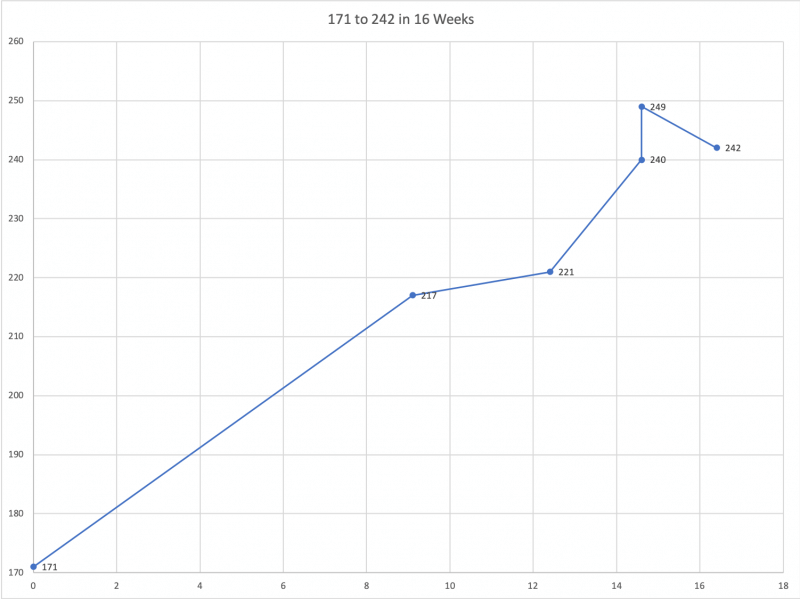
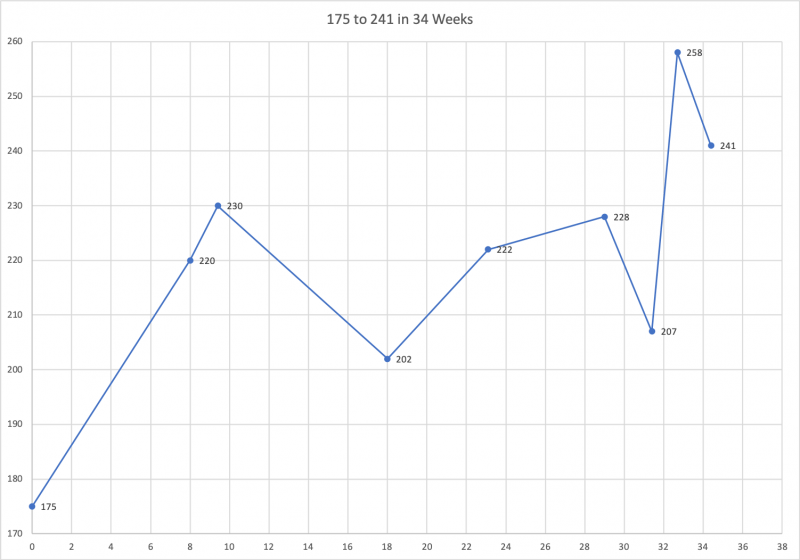
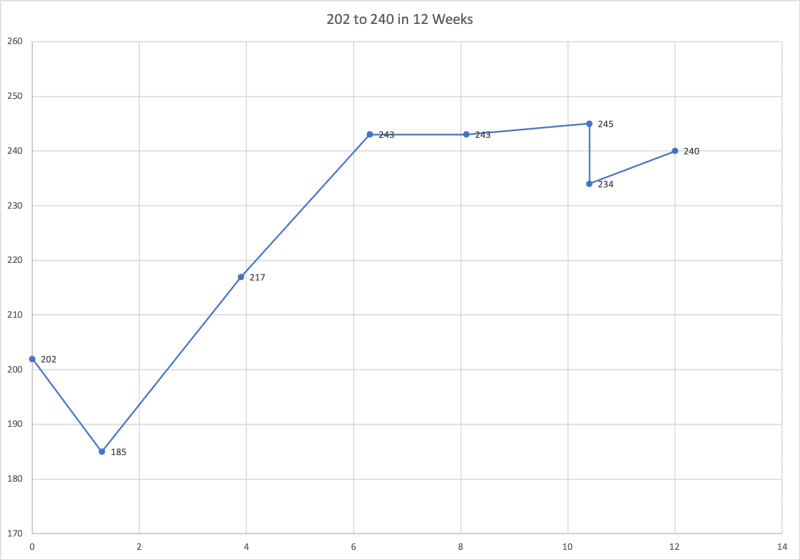
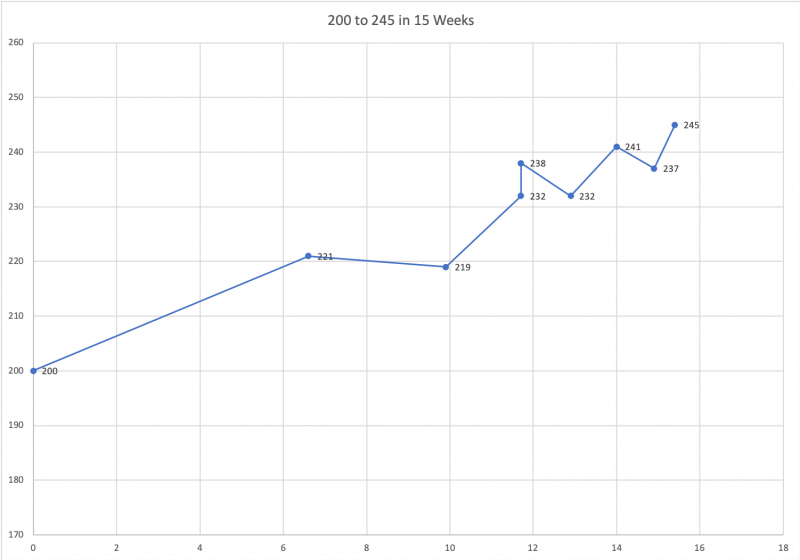
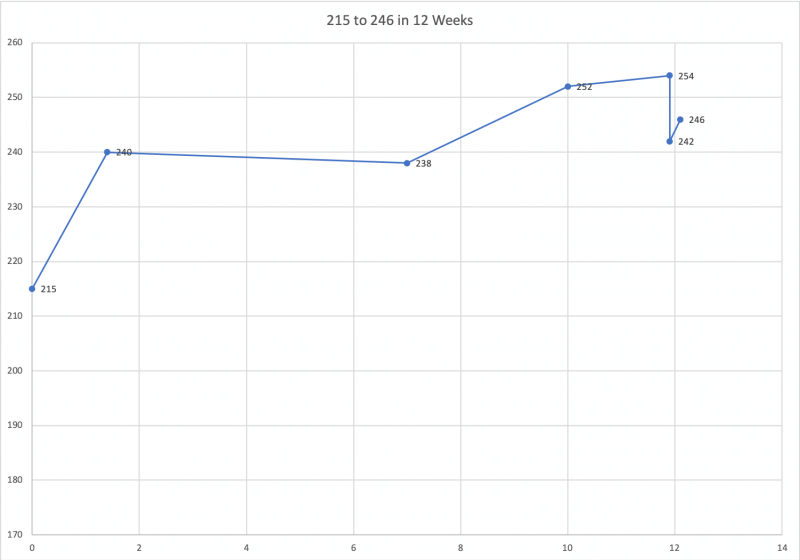
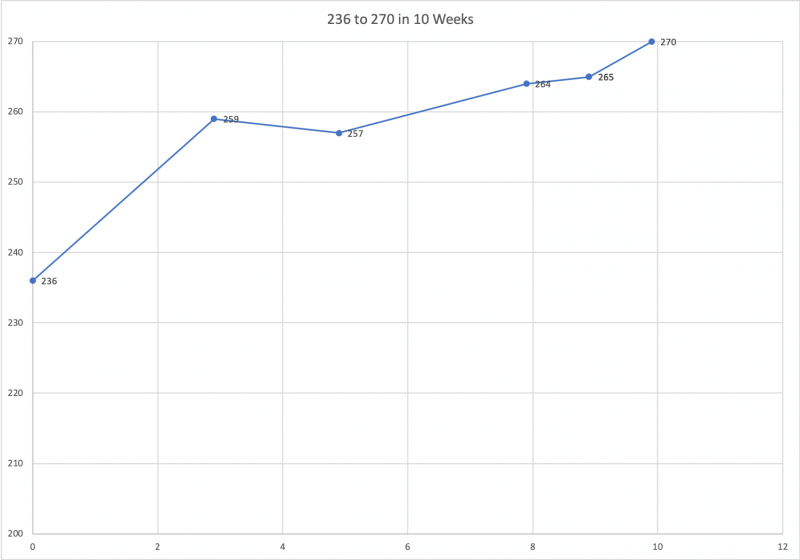
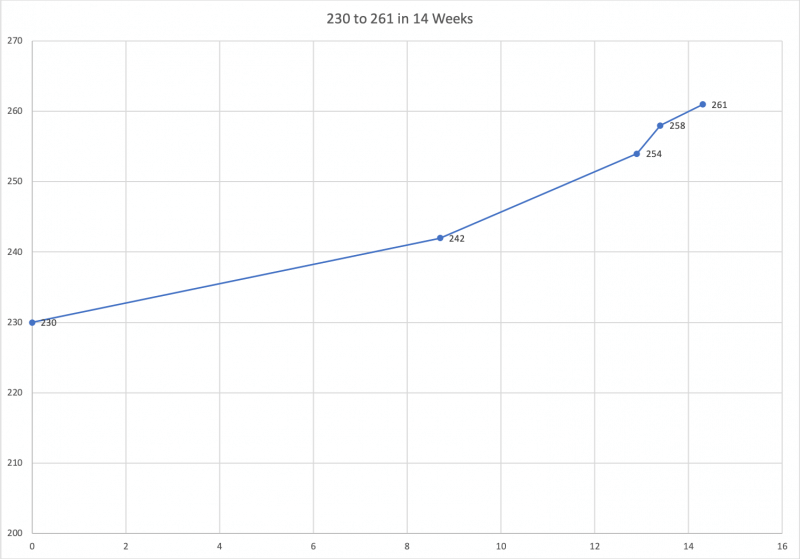
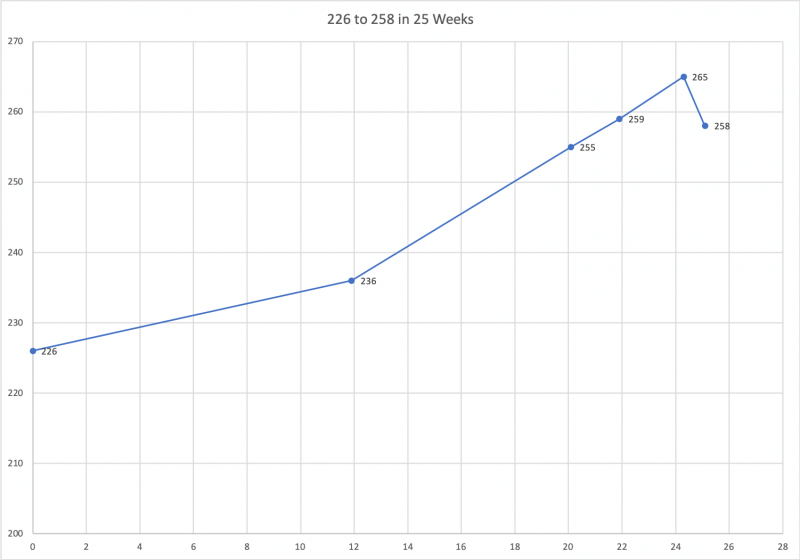
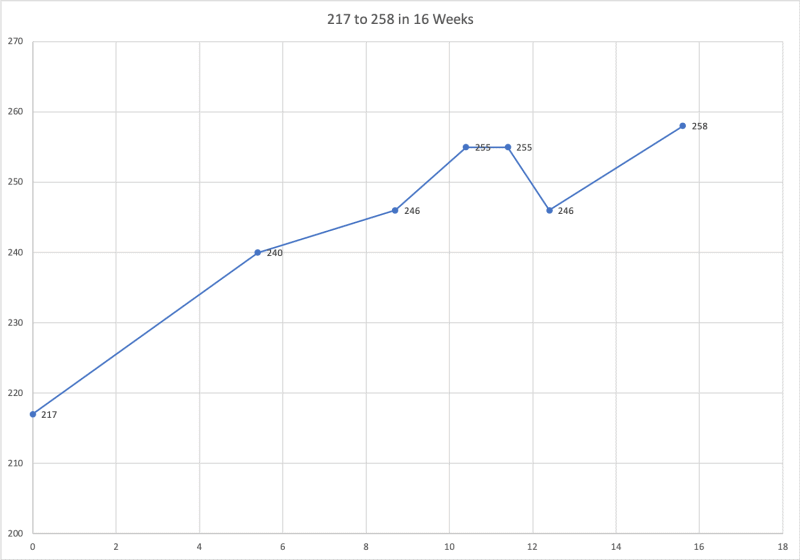

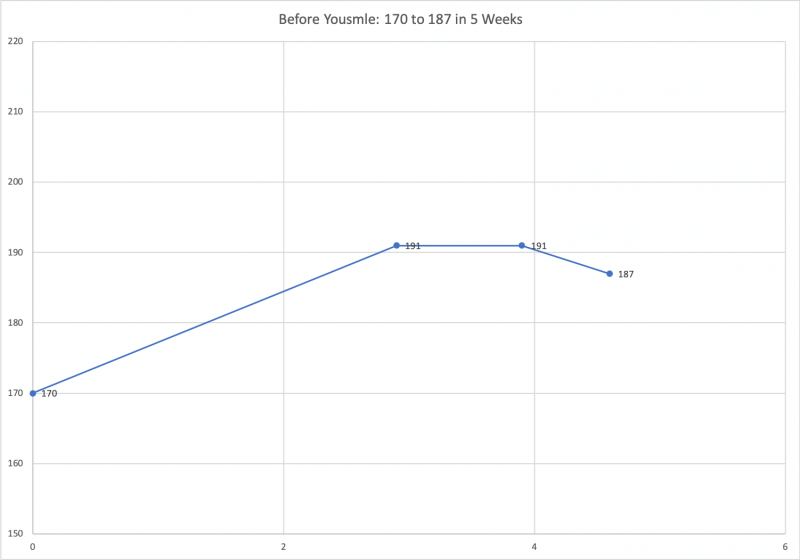
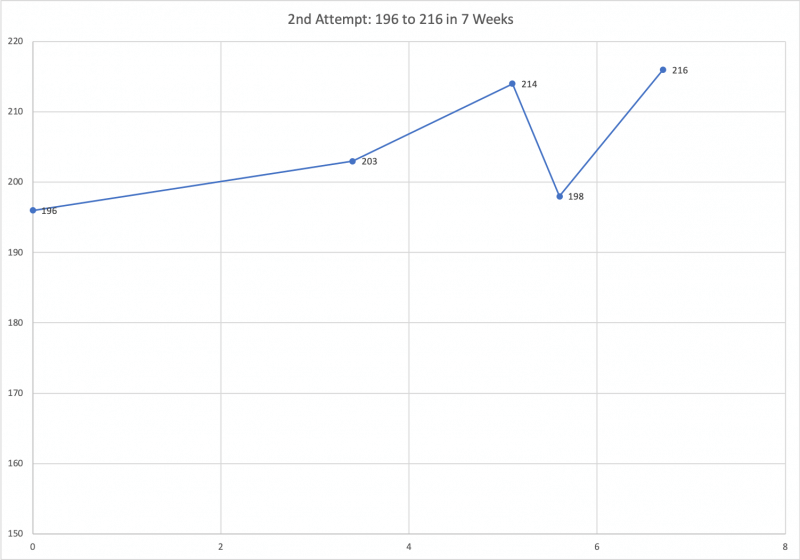
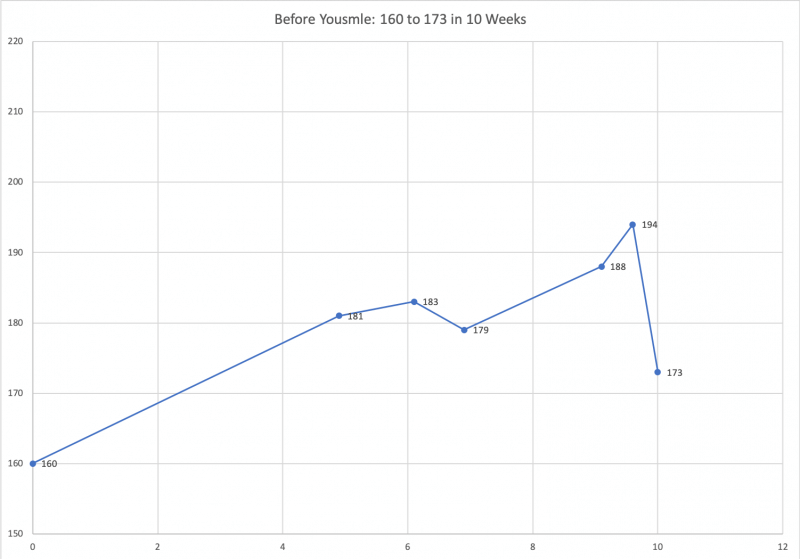
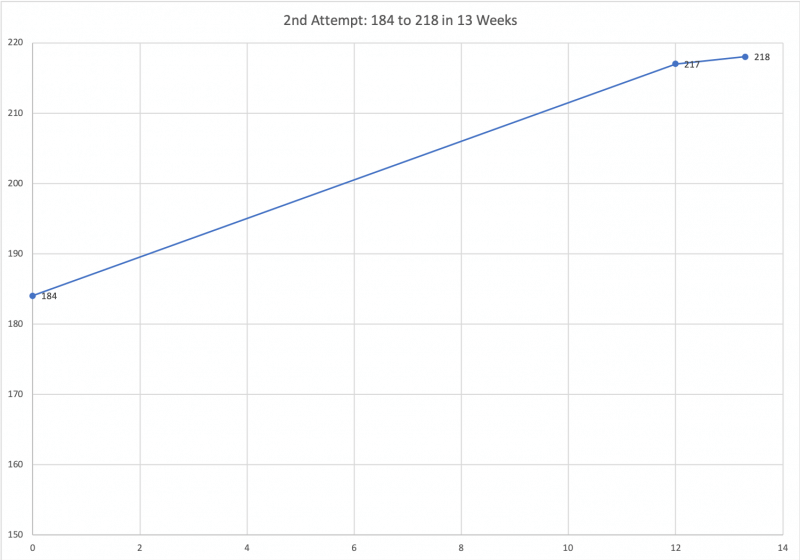

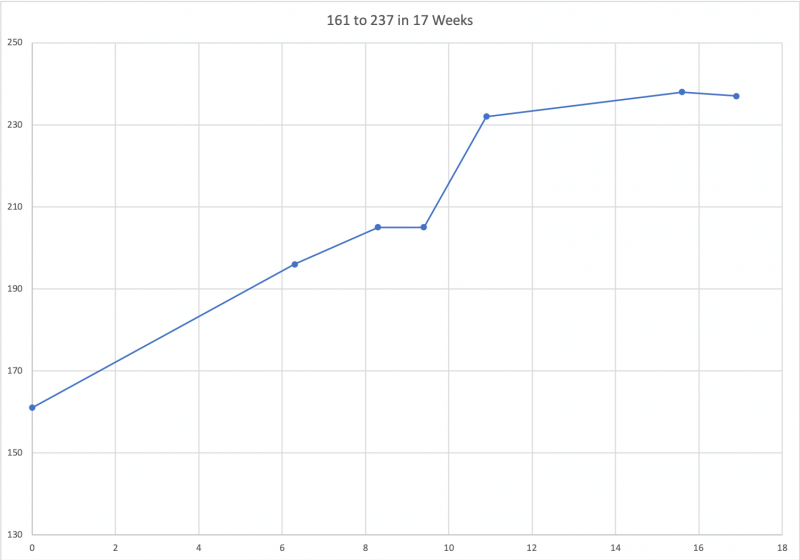
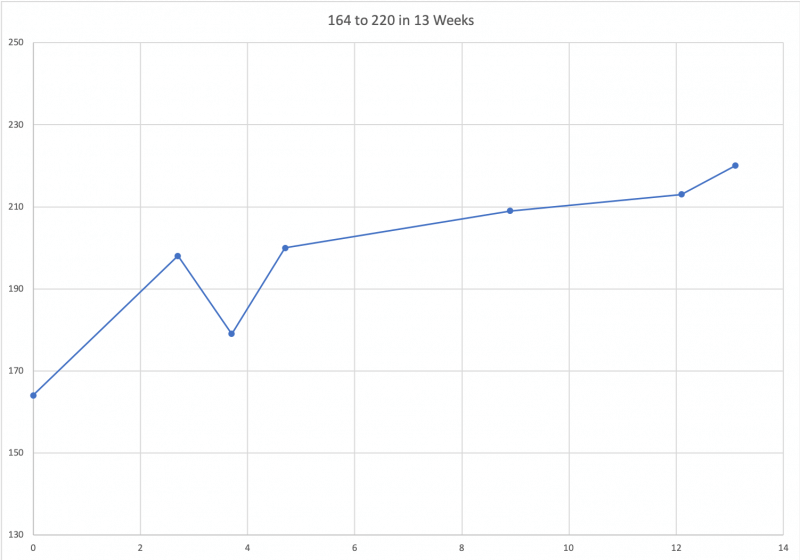
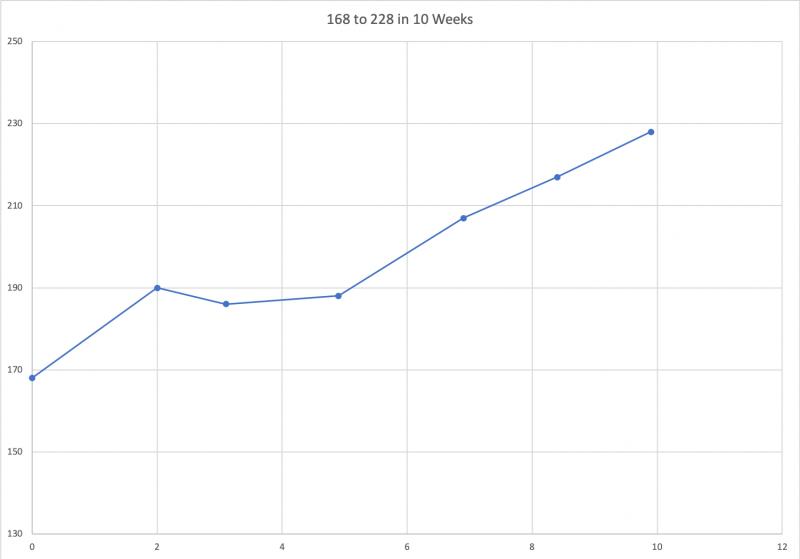







Hello alec, thanku for encouraging us through your motivational mails.. i have done uswa 1 got 205, and 75% in offline nbme 15.. am gng to have an exam within 1 and half month as my extended eligiblity period wud be over after that.. could i able to get upto 240 in just 6 weeks…? And wht should i prefer to increase my score? I have already done u world twice, FA 5,6 times.. am very still disapponted my performance.. please guide me sir.. 🙏🏻
Good Day Alec, I need some help please. I started using ANKI after discovering your website and it has been very helpful. I had been consistent with it daily since the beginning of the year and from May till now, I missed it for a couple of days and it became weeks and now months 🙁 I feel really bad and i want to get back to it. How do I do my ANKI cards after a 2 month break?
After exhausted efforts for passing this Step 1 and reading in many websites about promising you that they will make you pass this test, today I had found this website. Totally frustrated I had come to ask you how can I at least make it to get the results I always wanted to get? And any guide that leads me through my process in preparing so well after failed this test again. I’m lost in the space. And with no intentions to put my money in an unworthy bank again. Hope you can help because I don’t want to waste more money and if I’m going to do it again I want to do it worthy this time. Thanks in advance.
Hey Alec,
I’m broke so I can’t buy any of your cards. All I want is some sound advice. I’ve started doing uworld for the first time on timed random mode and I’ve finished just 22% in 3 weeks.. My percentage varies from 78%-85%. So prior to this I did Kaplan notes, videos and then read FA followed by rx qbank and pathoma videos. It’s been a year since I started prep but I studied only for 5months solidly.
My problem is that I’m unable to finish even a block of Uworld a day. I don’t know how to speed it up. I’m running short of time now and I’m sort of desperate. I’d be grateful if you could give me advice.
Much Thanks
could you please help me .. i hate anatomy even though i got an A in my school exam but for the step 1 i dont know where & how to study it and what is important (high-yield and what is not ) please guid me
Honestly one of the best ways is to use QBanks to identify gaps, then learn those particular topics that come up. There isn’t a one-stop resource that I’ve found that does a good job of highlighting all the high yield information.
Hi,
hey I have read many of your blogs and I have a question I would like to ask you! I have two weeks left for my test (already postpone it, and can’t do so more since my rotations start soon) and I need to bump my score as much as possible. Idk if doing Anki cards this last two weeks is something you recommend? or something else. Right now I took NBME 16 and got 207 and next monday I will be taking another and the monday after that another. I just found out about your BLOG TODAY since I am really stressed the NBME scores are really predictive of the real thing and I have already postpone my exam as far back as I am allowed to by my school. what do you think I should do to make sure I won’t failed the real thing or get lower than 207 right now. I expect to increase in my next two NBME but I don’t know what to do to make it kind of quick (I know it takes 3-4 weeks) but maybe I can try something out of the ordinary. I am planning these two weeks to do 3 blocks of Uworld (I already finished it once) alternating in certain days with Kaplan.
I have a post just for you! https://www.yousmle.com/1-2-weeks-before-your-usmle-step-1/
Hey Alec,
thank you for your immediate response. The link you gave me was the first post I read. and here is my thinking:
Advice # 1: I would be comfortable with increasing my score in the NBME and on the REAL STEP at least 20 points = 227 (initially i wanted a higher score even before I started studying but being realistic I need more time and I already got all the time I could get and apparently wasn’t enough).
Advice number 2) I would like to take 2 back to back exams to practice my endurance and also practice doing simulations with 2 blocks first, then break, 2 blocks, break, 1 block, break, 1 block, break, 1 block and done BUT the thing is that following my review source I made the mistake of trusting them and I already took UWSA 1 and 2. SO WHAT CAN I DO INSTEAD
Advice # 3) I will be working to see if they can squeeze me in the only prometric test location in my area to take the practice exam.
Advice # 4) That is what I had in mind given the limited days I have and I learn most from Q banks and cross referencing it to first Aid than only reading FA or any other material (videos)
Great – best of luck!
Thanks- if i cant take two exams back to back what can i do? 8 blocks of questions for endurance?
I usually recommend doing one UWSA/4 blocks of UW, followed by NBME.
Hey yousmle
I’m an IMG from India. Graduated in march this year.I’ve been preparing mostly from First aid and am halfway through my qbank and pathoma. I wrote my first NBME exam on July 2nd and got a score of 220. I got a score of 217 in my uworld self assessment a week before that. I’ve already blocked my exam date for august 23rd. Ideally I would like to get a target of 250+ at the very least. Being a graduate my baseline knowledge is pretty solid or I’d like to think so anyway. And I’ve settled quite comfortably into a 14 hours/ day study cycle. I’d like your advice on how best to integrate the cards into my study plan and cut out the superfluous study material.
Thanks ,
Sooraj
Great question – I’ve explained the best way to integrate the cards into your studying in the follow-up e-mails you will receive after purchasing the cards. Best of luck, and good job on starting at such a high level!
Hey Yousmle!
First off I want to say thank you for all the posts and study tips. You have no idea how helpful and powerful these tips are, so I wanted to first thank you for that.
So I have exactly 4 weeks before my exam, but my exam scores were seriously all over the place.
NBME 11 -baseline Feb 14-220 (2 weeks into studying)
School CBSE March 1- 257
March 14 NBME 12 -232
March 28 NBME 15- 260
So my questions are:
1.Where am I/What do my scores mean?
-I guess with taking out my CBSE it shows an upward trend which is good. But is a 28 point jump in 2 weeks believable?
2.What should I be striving for for my last month of studying?
Thank you again for all your help!
Wow, you’re right, very variable. I assume you’ve since taken other NBMEs, so have a better idea if the NBME 12 was an aberration. It’s not uncommon to see one NBME significantly below the others. Just like everything, there are no guarantees, but I’d tend to believe the majority of your NBMEs, whatever that might be.
Good Afternoon
My exam is in 3 weeks, ive been studying 12 hours a day from FA and Uwold which i just finished with a 60% yesterday i scored a 184 in nbme 15 im really scared and cant push my exam.
What can i do?
Thank you so much,
Thank you so much for your message. I completely understand how secure you must feel, since you have a very small window of opportunity, and not a lot of room for error. Here is an article I wrote about this sort of situation: https://www.yousmle.com/1-2-weeks-before-your-usmle-step-1/
Is there a reason that you can’t push the exam back? Depending on what score you’re hoping for, that may be your best option, depending on the circumstances.
Alec
Hi ALEC,
I Scored a 215 on NBME 15 2 weeks ago, 220 On NBME 13 today, my exam in 2 months, my target is to get 240+ what is the best strategy?
I’d start with these articles:
https://www.yousmle.com/basic-anki-cards-the-complete-guide-for-med-school-and-the-usmle-step-exams/
https://www.yousmle.com/nail-fundamentals-usmle-step-1-nbme-practice-exams/
https://www.yousmle.com/5-keys-rock-usmle-step-1-anki-spaced-repetition/
https://www.yousmle.com/usmle-world-strategy-step-1-wrong/
https://www.yousmle.com/first-aid-for-the-usmle-step-1-worst-mistake/
Best of luck!
Alec
Hi I have a request and I would be very glad if you help me. My wife is preparing for the step 1 which is in 10 days. She finished the first round of UWORLD with 73%. Yesterday, she took NBME 16 and got 228 which is not good in her mind. She has a goal to take 250+. She studied a lot and she has a strong background. What do you suggest? Does she need to postpone the exam?
Great question. Obviously, if a test is that soon, it’s highly unlikely that she could improve her score that much in that period of time. The most important question is what is more important, the chance at a particular score, or taking the test at a particular time? If the score is most important, then certainly delaying the test would make sense.
hey yousmle, how much should an IMG aiming for to be atleast considered for IM residency? thanks
The average non-US IMG score for matched IM applicants was 231 in 2014. The average for unmatched was 217.
Hi Alec, I’ve just read your page since I was looking for an answer for what happened today. You see, I took nbme 13 and scored 330 which is the equivalent for 192 🙁 I completed UW with 56 %, did my first nbme on july . At that time I did nbme 16 and 17 because I was hoping to do the real exam on september. I scored 194 on nbme 16 and 202 on 17. Someone I know advised me to pospone the exam and study harder. I did it or at least I thought I was doing it and now after going through UW Q bank for the second time and scoring 91 % average in all queston and 57% in my incorrects only I did the nbme 13 and got a much lower score like I said. I’ve been studying about 10 hours a day and I don’t know what to do.. I am kind of sad now because it seems like all my effort is for nothing. Do you have any advise for me? I’ve been studying for a year now.. 🙁
Thank you in advance
I’m so sorry to hear about your difficulties with studying. I worked with several students who is then in a similar situation. They studied for basically an entire year, without any improvement in their scores.
The biggest thing I would suggest is to focus more on trying to understand disease processes rather than having a set number of pages in a particular book that you want to read. For example, most students typically focus on learning everything in a particular book, then moving on to another. Instead, I would focus on learning the disease process, and using whatever resources you have available to do that. That way you can structure your day in a more predictable manner, focusing on learning a particular number of diseases or topics during the day, rather than trying to read some predetermined number of pages.
Keep your chin up. Just focus on one problem/disease at a time, don’t think about the number of pages of a book you’re supposedly supposed to read, or all of the crazy/misguided advice you will read online.
Thank you very much for your message. I will try to keep my chin up like you said. I did another nbme today and score 211. Not much but surely much better than yesterday. I will try to follow your method the next 4 weeks. Wish I could have you as a tutor but it is what it is.
Where can I buy your anki decks? Thanks
Thank you so much for your response, and congrats on the improvement. You can purchase the cards at yousmle.wpstagecoach.com/step1anki . Best of luck!!
I bought your cards and I am retaining more. I failed my
test with 185. I want to take it in September. I am doing 40 new cards
per day and review the others…how can I maximize reviewing the cards
so I can finish before I take it again. How apart should I take NBME to see an improvement before I take the step.
Thanks,
Maria
Hi Maria,
Sorry to hear about not passing, and thank you for your question. There are ~1400 cards in the Step 1 deck, so if you do 40 new cards/day and review all your old cards, you should be able to finish by mid-September at least. As far as NBMEs, I’d recommend taking one every 2-3 weeks to check on your progress, to make sure your scores are improving.
Alec
Hi Alec . I am an IMG, graduating from med school about 4 years ago. I scored 164 in the practice NBME17 4months ago and just took NBME 13 ,scoring only 183. I feel very much discouraged. I have gone through the Uworld qbank once and First Aid twice and also used pathoma videos… Haven’t worked with flashcards or anything like that..My exam is in 12 days and i don’t know what to do. What would u kindly advise ?
Hi Borboh,
Thanks for your message. Unfortunately, you’re probably not in a place where you could comfortably take the exam. I’d suggest focusing on pathogenesis to presentation understanding, since that is usually one of the biggest reasons students don’t reach the passing threshold. You can learn more about it here:
http://www.yousmle.com/nail-fundamentals-usmle-step-1-nbme-practice-exams/
Best of luck!
Alec
Hi Alec,
I hope you are well. I was hoping for some advice on how to attack my last 3 weeks of studying for the USMLE step 1 exam. I’ve consistently followed your method, and in addition have been using you anki deck, and my track record is as follows:
baseline NBME 7 – 224. (2 months out)
I used Kaplan + some uWorld and used your method for one month of pathogenesis to presentation cards into anki.
NBME 11: 247 (5 weeks out)
continued your method, in addition to reading through FA to high-light topics never seen (most of these are random terms that I’ve never heard of ie Brugada syndrome, Jod-basedow phenomenon, etc) or I am weak on and reviewing those and turning them into ANKI cards (which slightly slowed down my review of problems).
NBME 12: 256 (4 weeks out)
same thing, but my review of problems has focused more on details than on concepts, and I feel like I am forgetting concepts, even though I am keeping up with daily reviews of ANKI
Today – NBME 15: 256 (3 weeks out)
Currently, I am doing 92 problems / day (random, timed), and review them; however, I feel like my reading of FA has slowed me down, and I am over concerned with the details, as opposed to the concepts. In addition, now that I understand the concepts, my reading of Uworld questions focuses on nit picky details. Thus, I am not reviewing the problems, as I had before. Or, I feel as if I know the concept, and gloss over it.
Do you have any recommendations or advice to continue improving, or at least maintain my score?
Thanks!
Rob A
Hi Rob,
First off, congratulations on your improvement thus far. That’s a pretty big jump for just one month, and so you clearly are doing something right. Thank you also for your kind words about the website, and for the Yousmle.com Step 1 Anki deck.
My best advice for you right now without having worked with you, would be to focus on developing a consistent way of going through questions. Your knowledge must be quite good to be scoring so high, so now you want to focus on making sure that you understand exactly what each sentence is telling you in each of the clinical vignettes. Focus on reading through each question only once, and on simplifying the question so that instead of being a complex two-step reasoning question, that it becomes a simple straightforward question that could easily be put on a simple flash card.
The key with this last point is to make sure that you understand what each question is asking you. One thing I found with myself, and in working with other high scorers, is that oftentimes the questions that we get wrong are not necessarily because of gaps in our knowledge, but rather because we misinterpret part of the question, or don’t understand what the question is actually asking us. By forcing ourselves to re-create the question as a simple fact recall kind of question, you can assess and improve your ability to understand what the question is actually asking you.
Hope this helps. You are almost there, just remember that the NBMEs do not give you quite as accurate of results the higher your score is so you might be improving, even if your NBME might not show it.
Best of luck! Please let me know how else I can help.
Alec
hey alec,
so what is the yousmle method exactly?
i have all of your decks and stuff, but i need to get a significant increase in my scores. I don’t think listening to videos and reading notes is helping me, so I need to do flash cards all day. I am talking about 1000 flash cards a day. Everything else is a waste of my time, I am finding.
One of my most popular articles on the subject is the following:
https://www.yousmle.com/nail-fundamentals-usmle-step-1-nbme-practice-exams/
I completely agree that passive learning is not a good way to learn.
Hi Alec,
I finished my first reading from kaplan and now I am in my second reading and doing FA and UW online , intending to give my exam mid June , how can I benefit from your method ? Can u help me plz
Thank you so much for your email. It sounds like you are doing a fair amount of reading, without learning actively. I certainly believe that active learning can help, and would suggest that you start by reading http://www.yousmle.com/nail-fundamentals-usmle-step-1-nbme-practice-exams/
Best of luck!
Alec
Hi ,
I am trying to share it on my Facebook timeline to see blocked content but unfortunately even after sharing it on facebook I am unable to see the content.
Can you help ?
Hi Aparajita,
Hmmm…sorry to hear the site hasn’t been working as expected for you. I just tried it, and it seems to be working. If you send me your e-mail I am happy send you the content. As far as the micro cards be sure to check your spam folder, and make sure you confirmed your registration for the newsletter.
Thanks again for your feedback!
Alec
Thank you Alec.I tried that and it seemed to be working.
Great, I’m glad to hear that it’s working!
Alex it doesn’t work with me can u send it to my mail Plz Amina.alsharief@gmail.com
Hello Alec, I have tried both Firecracker and Anki flash cards for USMLE
Step 1. Firecracker has about 11,000 cards and the Anki deck I
downloaded has over 16,000 cards (covers every line in First Aid); but
they become overwhelming and frustrating. They help with retention. When
I test myself on U World for the first time I scored well on a topic
that I studied (80% correct), but very poor on areas that I have not
studied or forgotten over time.
I see that your decks for Step 1 contain just 1300+ and step 2 CK has 1100+ cards.
My
frustration is the accumulating daily cards (300-400) from large decks
of 16,000 cards. And the frustration get more since it slows my pace to
move onto new topics. Some days I am not motivated to do 200 cards
knowing I have to focus on reading new stuff; so its a continuous
struggle of scheduling. I have 8 months to prepare for Step 1, Step 2 CS
and Step 2 CK.
Using large decks, I see that my knowledge is
becoming like the isolated facts being tested, its becoming a fragmented
memory as well and I am loosing the big picture or concept to use in
the clinic as a to be physician.
Please help
Hi Drew,
Thank you so much for your message. I think everyone that has tried either Firecracker or the numerous decks floating around on the Internet can relate to exactly how you feel. The focus is so much on retention of simple facts, that the number of cards balloons to a unmanageable number, which takes away time from other important things, like learning new subjects, as well as doing question bank questions.
Your question is a fantastic one, which is what can we do to overcome the feeling of being buried in flashcards, particularly simple ones so that we don’t feel like we are fragmenting our knowledge. For me, I was unwilling to give up on spaced repetition, and as such, had to accept that a certain portion of my day would be spent doing cards. That said, typically I was doing it no more than 300 to 400 cards a day at the most, even at the time I was in my dedicated study period. The way that I was able to cut down on the number of cards that I did was making pathogenesis to presentation cards. If you turn a series of 10 simple facts into cards, you will end up with at least 10 cards. However, if you can connect multiple facts with each other, by making sense of how each is related to the other, you can dramatically cut down on the number of cards that you do. My best advice would be to work on connecting pathogenesis to presentation, which will allow you to be more efficient with your cards.
You referenced the decks that I have on the website, which are now a little over 1400 cards for the Step 1 deck. The goal of this was to create templates of pathogenesis to presentation cards in some of the most difficult to understand subjects for students studying for their USMLE exams, as well as to provide examples of other basic cards. You can find numerous free samples on the website as well. My hope is that with the material you can find on yousmle.com that you can cut down on the number of cards that you have to do, both saving yourself time, helping you to apply information, as well as to free up time for other important activities.
Best of luck with your preparations! It sounds like you have learned a great deal, so I wouldn’t recommend blowing up everything and starting over. Just focus on making connections where possible, and utilizing pathogenesis to presentation cards to cut down on the number of cards you have to make and review every day.
Take care,
Alec
Hi, Alec, I just stumbled upon your website and read through almost all your posts, it was really helpful. I
was planning to take my exam in a month and have been preparing for USMLE Step 1 for a looong time. But while doing qbanks, I have realized I’m terrible at both integrating/applying knowledge and recall. Planning to
delay my exam another month now. I downloaded a sample of your Step 1 Anki deck, and I found them very useful, it made me think about things I wont usually think of, made me connect the dots between a high yield fact and the background concept. However, I’m new to Anki and don’t really know how it works. And I’m worried that it might be too late for me to work with flashcards now, with two months left before I take Step 1. What do you think?
Also, what else would you recommend, will doing more qbanks help? I find reading and re-reading FA quite boring, and I can never remember stuff. 🙁
-Kay
Hi Kay,
Thank you so much for your message, and for your kind words! You wouldn’t believe the number of students who have been preparing for their exam for many months, only to be disappointed in the amount (or lack) of progress. Although it’s a difficult road, I have seen success in these situations, so don’t lose hope!
Thank you, too, for your kind words about my Anki cards. The question is a good one, whether starting Anki so late in the game is a worthwhile investment of time. For the cards that you will make on your own, there is certainly a learning curve, although using a premade to deck can help both to give you a large number of cards to begin with, as well as to give you templates on how to best to make cards.
If it were me, I would still use Anki, which I still recommend for students I begin working with when they have only 6 to 8 weeks left. You are quite likely to forget what you’ve learned after a week or two, and even just boosting your memory by 10 to 20% would be worth the added effort. I would certainly focus on topics that are easier to make cards on, like pharmacology, and if you’re serious, to use the premade deck I made for exactly this situation.
For your other question, it’s hard to know exactly why your score is not improving as much as you would like. Without ever having worked with you, and going strictly based on my experiences with other students in similar situations, it’s likely a combination of not learning things from pathogenesis to presentation, forgetting a large amount of information, and not knowing how to apply the information to clinical vignettes. Focusing on these three areas is your best shot at improving your score. Question banks can certainly help, but you will likely have to go further than that to learn deeper information. You can check out the Resources page to see what books I used and recommend to gain greater depth and ability to make connections.
Thank you again for your message. If you have any other questions, please let me know!
Sincerely,
Alec
Hi Alec,
I purchased your step 1 Deck and and have gone through about 70 percent of them. They are concise, easy to learn and full of high yield information. They helped me grasp some of the most difficult concepts (EX: Bacterial Genetics for me, General Virology, Embryology and some conceptually challenging topics- ex pathogenesis to presentation for Endometriosis, Difference of mechanism between Staph and Strep pyogenes skin infections ). I still have to review UWorld in it’s entirety and I plan on making Anki cards from it’s explainations (Ofcourse- I’ll exclude the concepts covered in yours/or simply add if I’m weaker in some sections).
However, I have a few questions related to the deck :
1. I am aware that they do not have notes/cards for each and every question on U world. How many/what percentage of questions do they cover? Uworld has a total of 2116 questions.
2. About 2 weeks prior to the exam, I wish to create a filter deck and review all the cards (Cram mode)- Do you recommend that? Would appreciate any suggestions that you might have.
Best,
K
Hi K,
Thank you so much for your message, and for your kind feedback! It is honestly difficult to know what percentage of questions are covered, since honestly, just as important as knowledge is your ability to apply that knowledge when dealing with question banks. As far as doing cram mode, I never found it particularly useful, since the entire point of using spaced repetition is that you don’t have to cram. If, perhaps, you haven’t finished the entire deck, and have a couple hundred cards left, then it might be worthwhile, otherwise I think just sticking with your current schedule and doing your cards every day would suffice!
Best of luck!
Alec
Hi ,how are you? I am IMG , I was doing ANKI for the past 3 months I had an improvement really good , but now no any more , I am worry , I am scoring 200 on nbme , no enough , I would like what I can do to improve those results
Hey!
Thank you so much for your message. This is something that a lot of people deal with, hitting a sort of plateau in their scores. My two popular articles on the subject deal with learningthings to a sufficient depth, since one of the biggest things that students struggle with in Step 1 is learning facts rather than improving the understanding. For best my advice on the topics, I suggest the following articles-
USMLE World: Is Your Strategy Wrong? (And How I Scored 270 on Step 1 By Ignoring The Dogma)
Nailing the USMLE Step 1 Fundamentals (#4 Helped Raise My Score to 270 from 236 First NBME Practice Exam)
Another thing that I work on with students that I tutor is their ability to understand questions, and particularly in their interpretation. It’s hard to explain in writing without going over questions with students, but the main idea is that you should understand what every sentence means for every question, not just try and look for buzzwords.
Best of luck!
Alec
HI ALEC
How are you ? i’m a 2nd yr student here in china..bt mostly we start our medical course in sec 2yr ,and most of there books are hardly to understand due to there english..and i want to write uslme nest yr ..pls Alec can u help me with sm tips and advise and the best materials 2 use coz i want at 1st sitting i shld atlese flock 280..thank you sir ALEC
Hi!
Thank you so much for your message. Lucky for you, I have a list of some of my favorite resources for Step 1, right here:
http://www.yousmle.com/resources/
Best of luck with your studies!!
Alec
Dear Alec,
How are you? I would love to get your opinion about my situation and how best to proceed. I am currently a month and a half into my final semester of M2.
I just took NBME 7 today and scored a 400, which according to the report translates to 207. We have quite a few chapters in systemic Path such as Repro, CNS, Breast, Skin and Msk yet to cover as well as Pharm for these systems. I also haven’t fully owned the Renal section we just covered and really need to work on my biostats and behavioral.
Should I be worried? My uworld average on timed random mode (minus biostats) on all material covered since med1 to date is 77%. So needless to say, I was a little shocked by the score I got on NBME 7 today. My goal is a 260+. I know we have a while till December to complete M2 and obviously I have at least 8wks to review before Step 1. I just want to know if you think its possible to make that jump?
I did review the questions I missed with a buddy who got 262 after I finished the exam, and I found that I actually knew the right answers to a bunch of questions I missed, but I guess I didn’t see the clinical picture clearly or conceptually get what was being presented. Any advice you have would be greatly appreciated.
Thank you very much.
kind regards
Toju O
Hi Toju,
Thank you so much for your message. Congratulations on doing a practice exam so early. Honestly, I would say that there is no reason to worry. There is still a ton left for you to cover. I think most people in your shoes worry about where they might be projected to score, since we all want to do so well, and are trying to find ways that we can reassure ourselves that we are on the correct path. Truthfully, it’s hard to predict what your score will be given the fact that there is still a lot of material that you haven’t covered, and given the fact that while your knowledge is probably very good, that there is still a large amount that is difficult to apply in clinical scenarios. At least this is what I experienced, as well as the many students that I have tutored, in that applying the facts that we’ve learned to clinical scenarios is difficult, and a skill unto itself.
My best advice is to continue to learn things well, particularly mechanisms and pathophysiology, and try to apply it as often as possible. Try not to worry too much about where you might be predicted to score, as that is more likely to drive you crazy that it is to help you achieve your goals.
Best of luck! Thanks again for your feedback.
Alec
Hi Alec
I was reading your site and found it very helpful in refreshing for USMLE prep. I saw that you recommended a book for Immuno and I just bought it on Amazon and are finding it VERY useful. Do you have a similar recommendation for genetics and molecular biology? These subjects are giving me great difficulty and would love your feed back
Thank you
Dear Marco,
Thank you so much for your message – I absolutely LOVE the immunology book, and it continues to be one of the best books I read in medical school. Unfortunately, I don’t know of a similar resource for learning genetic/molecular biology. Honestly, those topics were difficult for me, mainly because most of the resources I could find were geared towards grad students/students not taking the USMLE.
What I did instead, which worked but admittedly not as well as if I’d had someone amazing explain it all to me like the immunology book, is to do questions on that particular topic, then study from the internet/a good helping of Wikipedia to make sure I understood not only the answers, but also to understand exactly what they were explaining in the question stems.
Hope this helps. If you find an amazing resource for learning genetics/molecular biology, we’d love it if you’d share it with us!
Looking forward to hearing more from you!
Take care,
Alec
What exactly is the name of this Immuno book?
*How the Immune System Works *
Here is a link in case the above doesn’t work: http://www.yousmle.com/immune-system-paperback
Hope this helps!
Alec
Thank you for all the great tips! I need some advice though. I have my step in 200 for both Step 1 and Step 2CK. I took an NBME last week and got a 170 =( Is there anyway I can achieve this goal in 4 weeks? Thanks so much!
Dear Rie,
Thank you so much for your message. Sounds like a very promising situation from a connections standpoint, although I think your intuition is good that getting such an increase from your current NBME will not be easy. Generally, a 30 point jump in <4 weeks, even when I've tutored students one-on-one for Step 1/Step 2CK material, is not typical. Looking through results of past students I've worked with, the higher jumps in NBME Practice Exams has been ~30 points (one person had a jump of 53 points in a month, but that was an exceptional student). As far as what I've found that has helped distinguish the students who have improved their score more than others, it is 1) an ability to learn the material well, 2) making GOOD Anki cards (without drowning in needless/low-yield facts that they memorize), and 3) learning how to apply it to QBank questions.
Note, though, that this is for Step 1. I'm sure it's been done, but it is not typical to have to do both Step 1 and Step 2CK in such a short period of time, with such a desired increase in score.
Best of luck! Please let me know how else I may be able to help.
Alec
Thanks a lot! Do you offer any particular tips/courses to help out students?
I’ve started using Anki with UWorld for the tough topics (as I’ve already annotated UWorld into FA), and you’re right, it rocks!
Thanks so much for your message. As a USMLE tutor, I share some of my best tips, as well as most popular lessons, on this website in the form of articles and cheat sheets. I don’t currently offer a particular course, per se, but that’s a great idea that I will certainly consider!
Thank you for your reply. Do you think it’s realistic to go from a 209 to 235> in 3-4 months? I will only devote to doing UWorld the 2nd time and going through Firecracker and doing a review of Pathoma.
Great question. For the typical student I’ve worked with, that should be plenty of time. However, note that I’ve found the most important variable in the equation isn’t the number of days studying, but rather how effectively one uses their time. Specifically, how effectively one identifies their weaknesses, how well one learns the pathogenesis to presentation of each subject, and finally how well one can apply their knowledge to each question.
Hope this helps!
Hey there, your blog is absolutely great! I regret that I found it this late in my prep. I have a question for you. I took NBME 11 today (the first one I’ve ever taken) and did disappointingly bad: a meager 209/410. My goal is for something above 235 so this was definitely a huge blow to my study prep.
What makes it worse is that I’ve done Kaplan material once (except for Anatomy for which I used HY), FA 3 times, UWorld once (annotated key points to FA) with a cum of 78%, and Pathoma once (in february). I plan to take the exam in October but don’t know how should I go about. I clearly know that my study technique is not working (given the low score.) I’m starting UWorld review from tomorrow (2 blocks a day) along with reading my weak topics from FA and hopefully creating some Anki cards. I’ll also review Pathoma again as I think I’ve forgotten a lot of the stuff (even after having annotated key points in FA). Do you think reviewing Pathoma is a good choice or should I switch over to Goljan?
I’ve done around 1075 q’s (40%) of UsmeRx and I will continue doing that whenever I get the time.
I’m planning to give another NBME (12) on the 20th of July and UWSA by the 4th of August.
Then I plan to do DIT in August along with my 4th read of FA and give an NBME after that.
Would you suggest I do anything differently apart from making cards? adding an extra qbank like Kaplan? using other sources?
Thanks a ton!
Hi!
Wow – it sounds like you’ve been doing a TON of work. I can understand how disappointed you must feel, since it probably doesn’t feel like your score is commensurate with the amount of work you’ve put in. While it’s hard for me to comment on why exactly your score hasn’t gone up, the pattern I’ve seen in many students I’ve worked with is that while we can indeed put a ton of TIME into our studying, we tend to recall less information, and be able to use it less if our methods are more passive. In other words, I found that while reading through First Aid, I could convince myself that I was “covering” more material, I often found when it came to actually doing questions, I would really struggle to apply that information, even though I had just studied that section!
Instead, what I found helpful is to do questions first, which helped me identify my weakest areas to focus on, and then to use other resources (Goljan/Pathoma, Costanzo, etc.) to fill in those gaps. Personally, I never found it super helpful to watch more videos, but if you’re one of those rare individuals who can retain everything they watch/read, and know how to apply that information, then by all means!
Hey!
Okay… so I think I’m doing something wrong, or am reading this post incorrectly. I’ve been doing the questions, and then based on the individual questions I get wrong, I go and review that topic (for instance if I missed something on renal, I’ll go that part about renal). Is that how I should NOT be doing it? I feel like I’m spending way too much time on doing that ,and it’s getting cumbersome to finish reviewing exams.
Please clarify your suggestion, if you don’t mind. Do you mean, do the QBank, random-setting, and if say embryology seems horribly weak, go go do a full day on Embryo??? With Anki cards? Thanks!
Great question! Typically I recommend “random” then say I get a particular question wrong in embryo, like on cleft lip pathogenesis, I would then study cleft lip and palate from First Aid, searching through the First Aid for all instances of cleft lip/palate, using the question bank as the context. I would focus on pathogenesis to presentation learning, then make specific Anki cards on that information, to make sure I never forgot it.
Embryology would be a bit too broad – I typically would just focus on the particular topic within that broad subject that I didn’t know, make sure I knew it well, then make sure I had Anki cards so I never forgot it.
Make sense? Fantastic question.